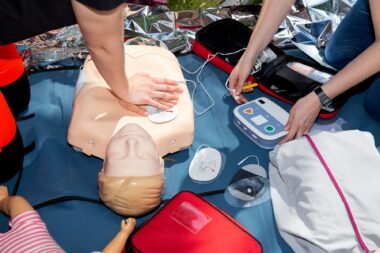Professor Lauren Rickards, Professor of Climate Change Adaptation, Sociology
Expertise: Climate change impacts and adaptation, disaster risk.
Professor Jason Dutton, Chemistry, Department of Chemistry and Physics, La Trobe Institute for Molecular Science
Expertise: The chemistry of fire and the chemistry that causes climate change.
Comment: “CO2 doesn't care what you believe, it just does its CO2 thing.”
Professor Michael Clarke, Emeritus Professor of Zoology, Department of Environment & Genetics, Centre for Future for Landscapes
Expertise: The impact of fire upon fauna, ecology and conservation biology of birds, reptiles, mammals, fish and plants
The Conversation: A staggering 1.8 million hectares burned in ‘high-severity’ fires during Australia’s Black Summer
Associate Professor John Morgan, Environment
Expertise: Fire in native grasslands, native woodlands and high mountain ecosystems, including Snow Gum country. Focus is on plants, fire behaviour and ecosystem responses.
Associate Professor Jim Radford, Environment
Expertise: Fire ecology - impacts of fire (wildfires, planned / prescribed burning) and fire regimes on native fauna, particularly birds. Impacts of climate change on fire weather / fire frequency.
Comment: “I suspect the recent dry weather and declaration of El Nino means we are in for an anxious summer. Grasses will cure quickly and become flammable very soon. There is still some soil moisture and moisture in the foliage of the forests that may see us avoid catastrophic forest fires this summer, but this is drying quickly as well and repetitive dry years could well have us back in a perilous situation.”
Dr Jim McLennan, Adjunct Professor Psychology, School of Psychology and Public Health
Expertise: Community bushfire safety
Comment: “An immediate serious problem is that bushfires have been off most residents’ radars for four years because of cooler wetter summers. Floods have been the talking point. People who moved recently into bushfire danger areas are especially at risk of being unprepared if a major bushfire threatens them.”
The Conversation: 70 years before Black Saturday, the birth of the Victorian CFA was a sad tale of politics as usual.
Dr Liz Conor, Principal Research Fellow, History
Expertise: Climate change and energy history, colonial attitudes to bushfires and the recent shift to management by Aboriginal Rangers.
Dr Alex Maisey, Research Officer Ecosystem Services, Environment
Expertise: Birds, fire impacts on biodiversity and particularly lyrebirds
Comment: “Just three short years ago the megafires burnt approximately 40 per cent of the lyrebirds’ range in south east Australia, including key habitats used for breeding, namely warm and cool temperate rainforests. Repeat fire at short intervals is a key threat to lyrebirds because it threatens their breeding habitat and foraging resources. Temperate rainforest habitats of south east Australia need to be prioritised for protection from fire as we enter a warmer and drier climate pattern of El Nino.”
The Conversation: That siren-imitating lyrebird at Taronga Zoo? He lost his song culture – and absorbed some of ours.
Dr Ben Wilkie, Adjunct Research Fellow, History
Expertise: Australian environmental history with a focus on Western Victoria
Comment: Policy, media and public responses to – and overall understanding of – bushfires in Australia can benefit from a longer-term view of the many and varied relationships between people and fire on this continent, which is a history that stretches back for millennia.
Key Facts:
La Trobe University experts are available to discuss the 2023/24 bushfire season.
Contact details:
Media are welcome to contact an academic directly, or through the media team: me[email protected]

